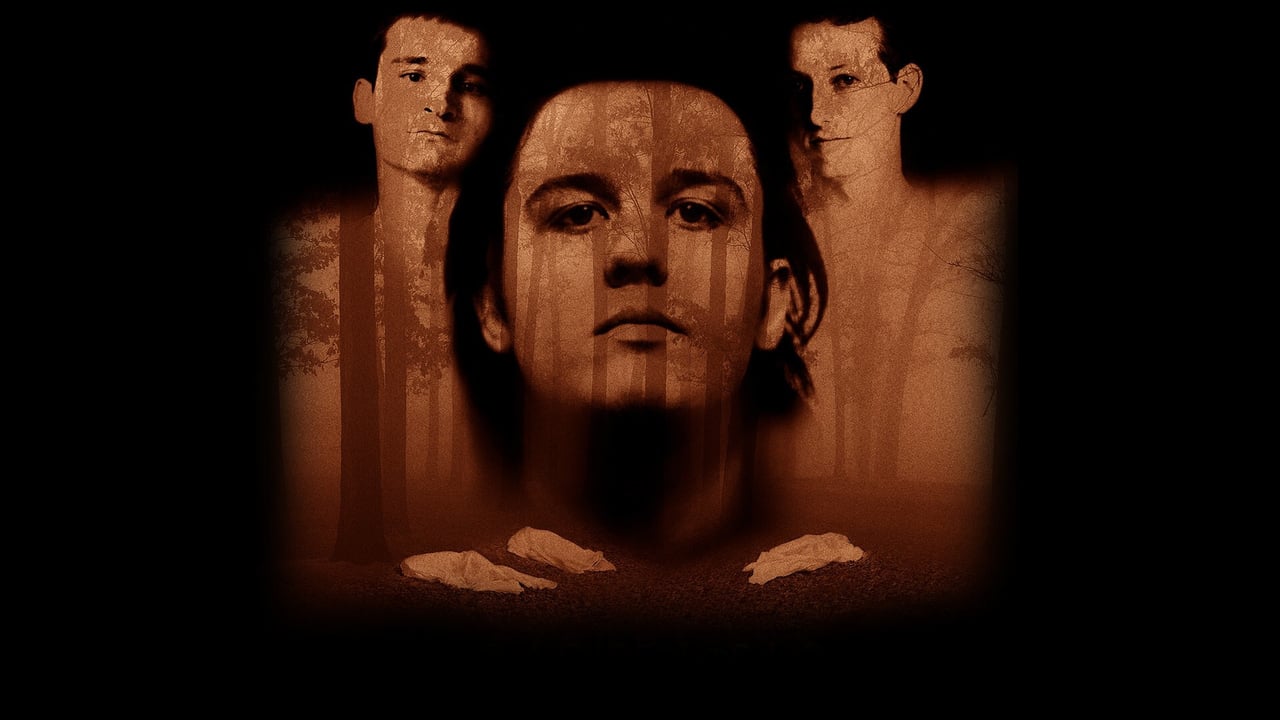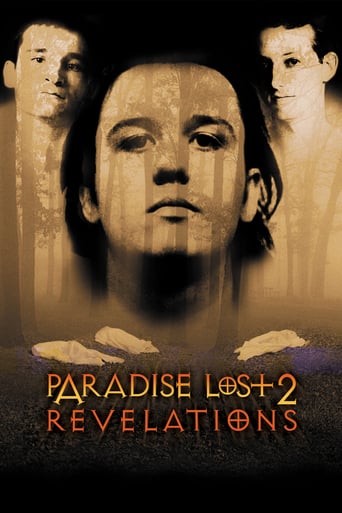

If the ambition is to provide two hours of instantly forgettable, popcorn-munching escapism, it succeeds.
... View Morea film so unique, intoxicating and bizarre that it not only demands another viewing, but is also forgivable as a satirical comedy where the jokes eventually take the back seat.
... View MoreIt’s sentimental, ridiculously long and only occasionally funny
... View MoreThe film's masterful storytelling did its job. The message was clear. No need to overdo.
... View MoreJoe Berlinger and Bruce Sinofsky direct "Paradise Lost 1 and 2". Both films revolve around a gruesome case in which three young boys were sexually mutilated and murdered in West Memphis, Arkansas. The incident occurred in the mid 1990s. Three teenagers, subsequently known as the West Memphis Three, were arrested for the crime. They were cleared of charges in late 2011.Much of both films focus on the travails of the three accused boys: Jessie Misskelley, Damien Echols and Jason Baldwin. All three were loners; ostracised young men from lower income families. Jessie is portrayed as being mentally handicapped or slow. His confession and admittance of murder is explicitly portrayed as being the result of police coercion. Damien, meanwhile, is painted as a victim of police scapegoating and community witch-hunts. Locals – politically conservative and strongly Evangelical – believe him to be the member of a satanic cult. Our film-makers argue that Damien is simply a moody teenager who just happened to be fond of dark literature, heavy metal and a little edgy nonconformity, all of which, we are told, are unfairly stigmatized.The second film focuses on a West Memphis Three support group which believes the three accused teens to be innocent victims, falsely charged. It also focuses on John Mark Byers, the stepfather of one of the victims. Byers, the film argues, may actually have been the trio's killer.Entertaining (in a sleazy, somewhat sensational way), both documentaries are nevertheless relentlessly manipulative. This case cries out for a more dispassionate tone, instead we're coerced from the on-set. Damien's past detention at mental health hospitals/clinics are ignored, his past confessions and writings on wishing to commit slayings are ignored, flunked polygraphs are omitted, the past violence of all three kids are ignored, various details found at the crime scene are ignored, the second film knowingly overplays the significance of "bite marks", Byers' dead wife and false teeth and fails to investigate the personalities behind the West Memphis Three support group, which may itself be a cult-like institution, enamoured by the photogenic, goth-like charm of Damien, who, while he may be entirely innocent, also demonstrates traits of psychopathy and manipulativeness. The point is, the film is exactly what it pretends to warn against: it's selective, biased, has a one-dimensional agenda and deliberately withholds information. So what's the truth? Nobody knows. The fact is, everyone involved in this case (from the victims, to the suspects, to the police, to the courts, to the suspect's friends and relatives) has dark histories and/or behaved suspiciously during the event. With such muddied waters, it's almost impossible to determine exactly what really went on. The "Paradise" films bulldoze away all these far scarier nuances.Regardless, the film's central point is worthwhile: the State of Arkansas has never convincingly demonstrated the trio's guilt beyond a reasonable doubt. And yet according to 24 jurors, they did. Confused? The three suspects were eventually released with the odd court enforced proviso that they essentially admit that they might actually be guilty, even if freedom of speech laws grant them the arena to trumpet the opposite. Bizarre. It's a double helix in which both sides (the courts and the suspects) simultaneously mutually admit their guilt AND win their freedom from accusations. In other words, the trio are essentially saying "we killed them, but we're free so we're innocent" while the courts, equally paradoxically, are saying "we railroaded them, but they're free now, even though we have enough evidence to commit them." This isn't justice, this is almost a form of psychosis.The first film is the more engrossing of the two. The second is filled with filler material, passages designed to pad its meagre running time. The second nevertheless captures well the toll the passage of time takes on our three "victims", and contains an interesting subplot which focuses on a local lawyer who is convinced that the West Memphis Three were wrongly accused. Berlinger and Sinofsky released a third film, "Paradise Lost 3", in 2011. A study by Ronald Huff, director of the Criminal Justice Research Centre, and professor of sociology Arye Rattner, estimates that in the United States alone, over 10,000 people are wrongfully convicted of serious crimes each year.8.5/10 – Worth one viewing. Similar fare: "In The Name of the Father", "The Wrong Man", "The Hurricane", "Conviction", "A Cry In The Dark", the excellent "Murder on a Sunday Morning", "The Thin Blue Line" and "Capturing the Friedmans".
... View MoreParadise Lost 2: Revelations picks up just a few years after the original documentary, Paradise Lost: The Child Murders at Robin Hood Hills. During that documentary, we were informed massively about the murders and mutilation of three second graders on May 5, 1993 in West Memphis, Arkansas. The three convicted seemed to be judged by a shady, flawed confession by one of the men and their personal appearances and interests.This is not only a sequel to a fantastic documentary, but it's a documentary that sheds light on something very, very frightening; a biased judicial system that reacts on present emotions, unclear evidence (when there hardly is any), and the personalities of the accused. It seemed that the three men were judged more on their likes and interests more than the actual murder. The three men are Damien Echols, now 24, Jessie Misskelley Jr., now 23, and Jason Baldwin, now 21.The focus seems less on them and more on the smaller characters incorporated in the large story and the backlash and uproar the original HBO film caused. In the beginning of the documentary, we are acquainted with a local support group made up of people from all over the United States who saw the original Paradise Lost documentary, were outraged, and started their own support club. Three brave adults even came up with the idea to start a website in support of the nicknamed "West Memphis Three" (a surprising thing since internet was still pretty new and vague at the time).The three people behind the website are shown at numerous points in the film accepting collect calls from prison from Damien Echols and holding a live, somewhat informal chat through their website. Damien is on speakerphone, people in the chat room ask him questions, and another writes down Damien's spontaneous responses as quickly as possible.John Mark Byers, the stepfather to Christopher Byers, one of the three boys mutilated in the woods, is brought to the foreground here. He has got to be one of the most unsettling, eerie, and vicious documentary characters I've ever seen. He speaks in the southern twang you can't ignore, and his six foot eight presence equipped with his strong, muscular build is astonishing. Although he appears to be an upset father about the death of his son, he copes with his anger in a mean-spirited, hateful way. In one scene he goes as far as setting up fake graves for Baldwin, Echols, and Misskelley Jr. and proceeds to douse the graves with lighter fluid before striking a match and incinerating it all.Byers is suspected in being involved in the murders of the three kids, and is victim to much gossip. On one of the boys, I believe Stevie Branch, but I could be wrong, there appears to be a bite mark. The prosecution insists it's a belt buckle imprint, but it impeccably resembles a purposeful bite mark. Oddly enough a few years after the original film's completion, Byers' wife, Melissa, died of "undetermined" circumstances.Again, despite noted limitations present in the film, directors Joe Berlinger and Bruce Sinofsky seem to have an unprecedented amount of access to everything case related. Sadly, because of the notoriety of the original Paradise Lost, the film has a few more limitations than the first one did. There are some instances where the film goes to a black title card saying Berlinger and Sinofsky were not allowed to film in the designated area at the designated time. Still, the video we do see is provocative, astounding, and shows us more than one may believe.Paradise Lost: The Child Murders at Robin Hood Hills was a strong, turning point in documentary filmmaking because of its unbiased nature and its attitude to "show it all." Paradise Lost 2: Revelations is an impressive and well made documentary as well and it has the power to sway our opinions of the case itself and/or drastically change them. All I can say at this point is that hopefully we find a paradise, and it's not as hokey and as gray at the one that has been endured for far too long by these boys.Starring: Damien Echols, Jessie Misskelley Jr., and Jason Baldwin. Directed by: Joe Berlinger and Bruce Sinofsky.
... View MoreThe first film was so successful at causing doubt that a lot of restrictions were placed on this second film. Now only one parent of the murdered boys is willing to take part, no footage is allowed to be recorded in court, and the attorneys of two of the accused will not be interviewed. As such, this film has to struggle to find more things to detail, and also has less scope than the original. This film is mostly about saying that it could have been somebody else. They find reported teeth marks on one of bodies, which some experts argue aren't teeth marks and some say that they are. All this means is that how can we trust "experts" when they argue with each other. A lot of focus is placed on John Mark Byers. Here is a man that comes off as mentally unstable, has a violent and drug filled past, lies (or is at least very confused) about aspects of his life. How can you tell three different stories about how you lost your teeth? I mean really different stories. It's aggravating that somebody with such a poor grasp on reality cannot even consider the boys' innocence (I've read that now he does). His wife dies due to undetermined causes and still he is less of a subject than the three boys. Again, this film isn't about who did it, only that it may not have been these boys, and there is no real evidence to suggest that it was. I'm glad these guys are now out of jail, and hope Berlinger and others will continue their investigations to find the real killers, even if that just means finding proof that it was these boys.
... View MoreAnyone who watched the original documentary Paradise Lost: The Child Murders at Robin Hood Hills probably has serious misgivings about the guilt of the West Memphis Three. It appeared that the police and judicial system grabbed onto the easiest suspects and ignored the parent of one of the boys. Using Satanic ritual to stir up the local yokels, the grabbed three convictions with insufficient evidence.There is no doubt in this followup that Mark Byers is certifiable and a stone criminal, and most likely the true murderer.The efforts at appeal were fascinating, but the film does not give the whole story as the appeal for Echols was denied in 1999, but Baldwin and Jessie Misskelley's Rule 37 hearings (begun in the fall of 2008) will continue in Jonesboro, AR on August 10, 2009 and last for two full weeks. In addition, last month, the Arkansas Supreme Court ordered the Craighead County Circuit Court and Judge David Burnett to "correct supplemented record on appeal," requiring the lower court to include a sworn affidavit by a prominent Arkansas attorney that alleges extraordinary juror misconduct in Damien Echols's original trial.This story is not over.
... View More